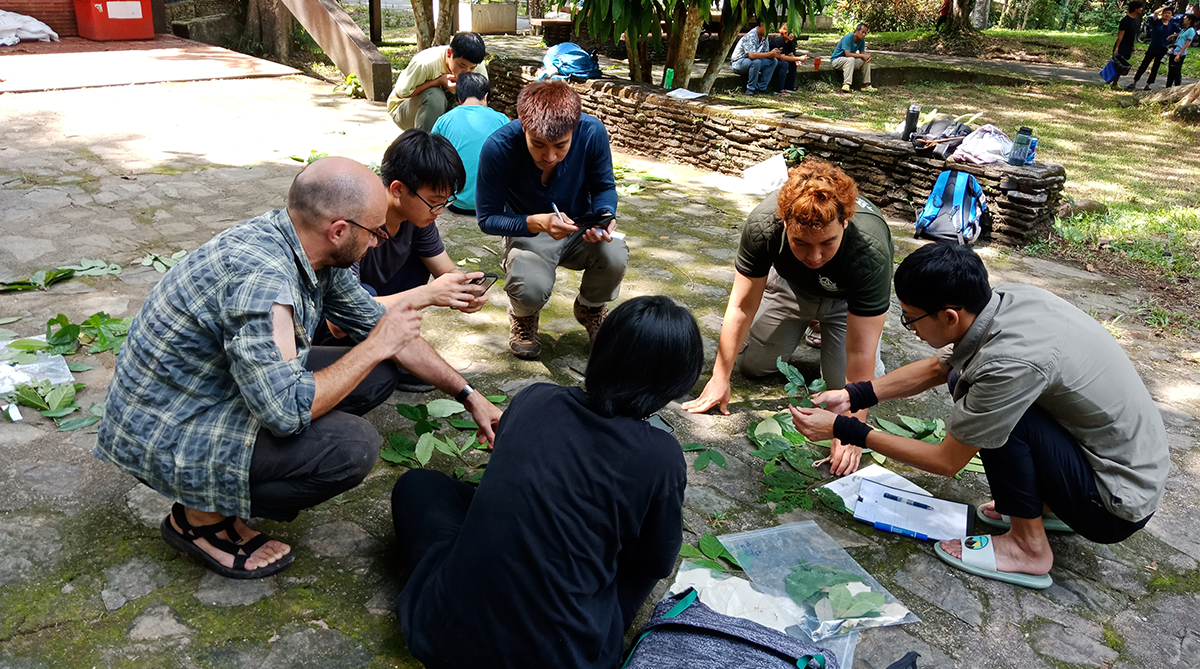
A group photo of The International Joint Field Course 2023 at Thailand’s Mu Ko Phetra National Park.
Offered by the College of Life Science since 2010, the International Joint Field Course has a rich history of international collaboration. Over the years, the College of Life Science has established collaborative partnerships with esteemed institutions such as the University of the Ryukyus in Japan, Bogor Agricultural University in Indonesia, Prince of Songkla University in Thailand, Academia Sinica, and Tunghai University.
Field courses are an effective, foundational approach to the study of the relationship between living organisms and the environment. These courses are designed to equip students with the skills and knowledge required to comprehend different aspects of ecology, including the study of flora and fauna, biodiversity, and climate patterns. Through hands-on field observations and practical work, students can immerse themselves in the environment and gain hands-on experience regarding their academic subjects. The highlight of these courses is the group presentations, where the students share their discoveries and insights. By engaging in rigorous fieldwork and follow-up analysis, students can apply the knowledge they have acquired and cultivate valuable experiences through overcoming various challenges.
This summer, in collaboration with Prince of Songkla University (PSU) and Tunghai University (THU), NTU’s College of Life Science organized the International Joint Field Course, themed "Land and Sea Expedition - Ecology and Diversity Field Practicum."The course kicked off with coastal and marine activities at Mu Ko Phetra National Park in Thailand. These activities included field experiments on fish diversity, surveys of seaweed and seagrass, the collection and classification of zooplankton, and observations of intertidal ecosystems. Additionally, terrestrial activities were a core component of the course, featuring nocturnal insect and bat trapping, bird-watching expeditions, reptile capture, and analysis of plant diversity.
Next year, the College of Life Science will once again host this remarkable course in its homeland, Taiwan, to provide students with more inspiring ecological courses and experiments. Looking ahead, the college will implement more such events to foster stronger international partnerships with collaborating institutions.

Students using a fishnet to catch fish during a field experiment on fish diversity at Mu Ko Phetra National Park.

Using microscopes to observe and classify collected coastal plankton.

Identifying plant species based on their characteristics and appearance during plant diversity analysis in Ton Nga Chang Wildlife Sanctuary.

Nocturnal insect trapping experiment.

